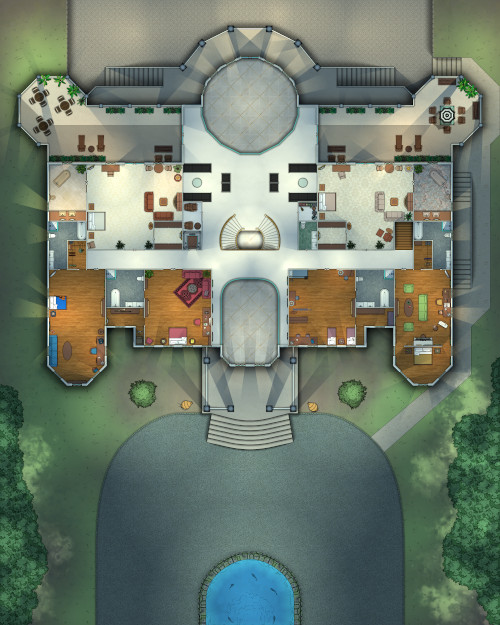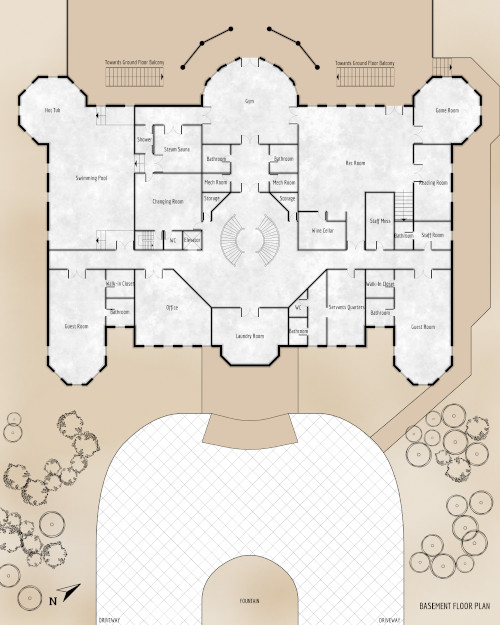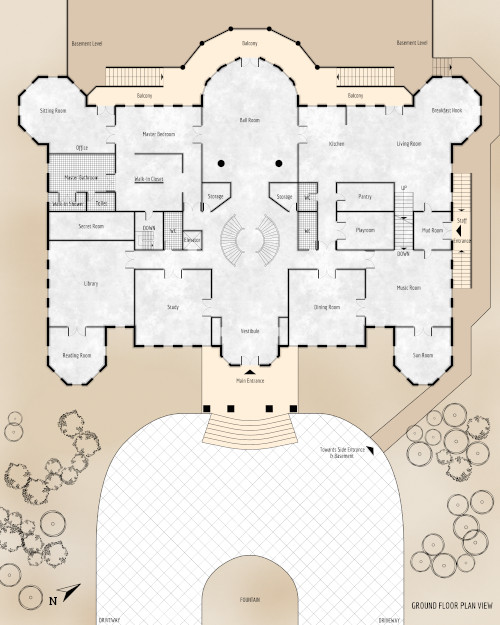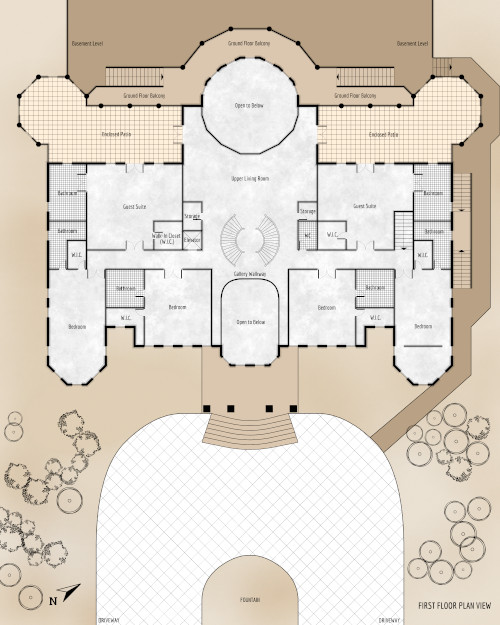Why do doorways lead to different rooms depending on the time of day? What's causing those geometric shadows that don't match any light source? How do visitors keep getting lost in mathematically impossible ways? What makes the grand staircase seem to have an extra step at twilight, and why do mirrors reflect events from hours ago?
Follow Cthulhu Architect on BlueSky!You are a mansion with infinite rooms, yet you’ve convinced yourself you have to live in the basement.
― Nitya Prakash
Margaret had inherited more than just the Ashford estate—she had inherited its hunger.
The mansion squatted on Beacon Hill like a diseased growth, its Gothic spires piercing the perpetually overcast sky. Three stories of blackened stone and twisted ironwork, surrounded by grounds where nothing grew except skeletal trees that seemed to reach toward the house with gnarled fingers.
The locals wouldn’t deliver groceries past the gate. They wouldn’t even look directly at the building, Margaret noticed, their eyes sliding away as if repelled by some invisible force. The postmaster, a nervous man with trembling hands, had pressed the keys into her palm with obvious relief.
“Been waiting thirty years for someone to claim it,” he’d muttered. “Maybe now the dreams will stop.”
Margaret had pressed him for details, but he’d scurried away like a startled rodent.
The first night, she’d slept in the master bedroom, surrounded by dust-covered furniture and portraits of stern-faced ancestors. The paintings seemed to shift in her peripheral vision, their eyes following her movements with predatory interest. She’d attributed it to nerves and the stress of travel.
By the third night, she could no longer deny what she was seeing.
The mansion was alive in the dark hours. Doors creaked open to reveal empty hallways that stretched longer than they should. Footsteps echoed from rooms she’d never entered, and whispers emanated from the walls themselves—not through them, but from within the very plaster and stone.
Margaret had discovered the truth in the basement, behind a wall that had been hastily bricked over. The mortar was dark with stains that weren’t quite rust, and the bricks themselves seemed to pulse with a rhythm that matched her terrified heartbeat.
She’d torn away the barrier with her bare hands, compelled by a force she couldn’t name. Behind it lay a chamber that defied the mansion’s architecture—a room that seemed to exist in angles that hurt to perceive, where the walls met in impossible geometries.
At its center sat a well.
The well was older than the mansion, older than the hill itself. Its stones were carved with symbols that seemed to writhe when she wasn’t looking directly at them. And from its depths came the sound of breathing—slow, measured, infinite.
Margaret understood then why the mansion had remained empty for three decades. Why the previous owners had simply vanished one winter night, leaving behind only their clothes and a house that fed on more than just the living.
The Ashford fortune hadn’t been built on shipping or textiles, as the family histories claimed. It had been built on feeding an ancient hunger that dwelt beneath the foundation stones, something that had been old when the first colonists arrived to find the natives already fleeing this cursed ground.
She should have left then. Should have run screaming into the night and never looked back.
Instead, Margaret found herself returning to the basement each evening, drawn by whispers that promised understanding, that promised belonging. The thing in the well was patient. It had waited thirty years; it could wait a little longer.
But not much longer.
The mansion’s hunger was growing stronger, and Margaret was growing weaker. Each night, she felt a little more of herself slip away, drawn down into those impossible depths where something vast and terrible waited to welcome her home.
The locals had stopped having the dreams, just as the postmaster had hoped. But that was only because the mansion had found a new dreamer—one who lived within its walls, one who could feed it from within.
Margaret Ashford, the last of her line, had finally come home to stay.









